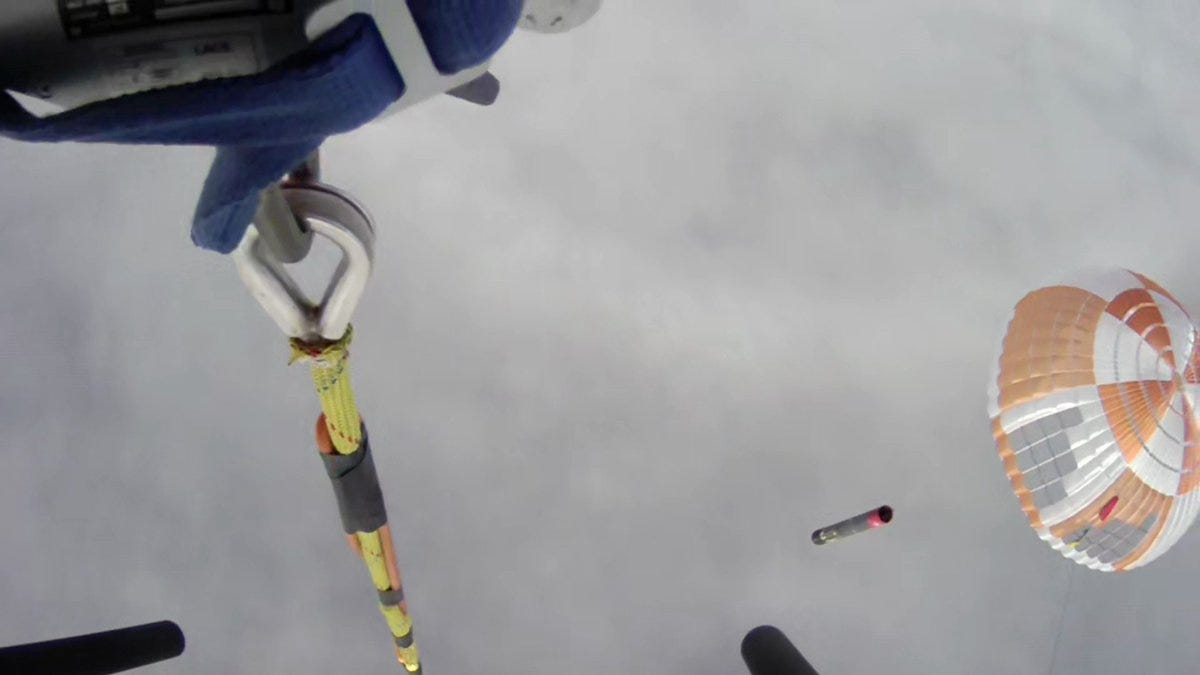Rocket Lab's Latest Try to Catch a Rocket Booster With a Helicopter Doesn't Connect
Rocket Lab made its second attempt to snag -- and hold on to -- the first stage of an Electron rocket.

A line and hook attached to a helicopter moving in to snag a falling Electron rocket and parachute.
Space startup Rocket Lab's second attempt at catching a booster with a helicopter didn't go as hoped on Friday.
Just minutes after one of Rocket Lab's Electron vehicles blasted off from New Zealand to loft a scientific research satellite to space for the Swedish National Space Agency as part of the aptly named "Catch Me If You Can" mission, the first stage began its return to Earth. The booster deployed a series of parachutes to slow its descent while a modified Sikorsky S-92 helicopter waited nearby.
It's not yet clear what happened, as the rocket never came into view on the livestream of the recovery attempt. A little over a quarter hour after launch, the company announced that the Electron first stage would be splashing down in the Pacific Ocean instead.
"Unfortunately it looks like we are not going to bring Electron home dry today, but we do have the back up option of an ocean splashdown so we'll bring you updates on that operation in the hours to come," the company said via Twitter.
We have lift-off from Launch Complex 1 for Catch Me If You Can! https://t.co/l2tnbzl9XL pic.twitter.com/EVz3s7RGaP
— Rocket Lab (@RocketLab) November 4, 2022
The original plan was for the chopper to snag the one-ton booster by its parachute cord using a hook and long line attached to the helicopter. Instead it will be plucked from the ocean and cleaned up for possible reuse.
A May attempt to pull off this unorthodox rocket recovery method saw the company manage to snag its booster using a long line attached to a chopper, but after just a few seconds the pilot let go of the load. The booster splashed down in the ocean and was recovered.
You can rewatch Friday's mission below:

